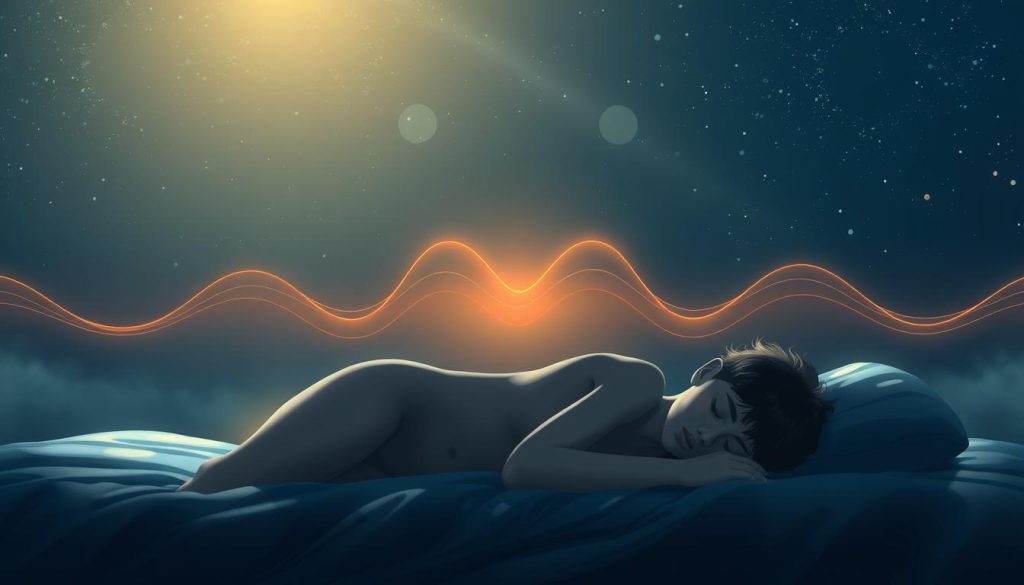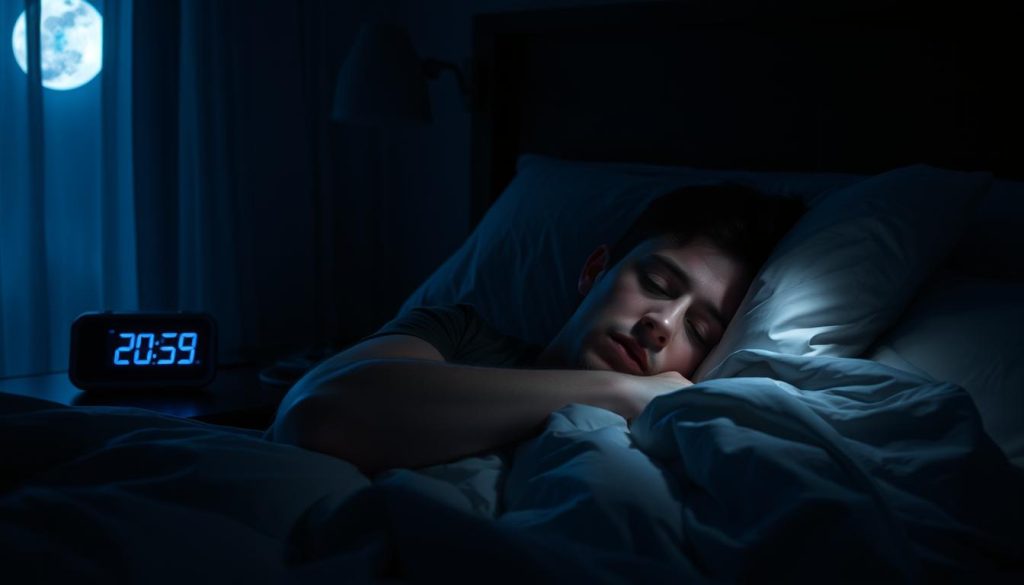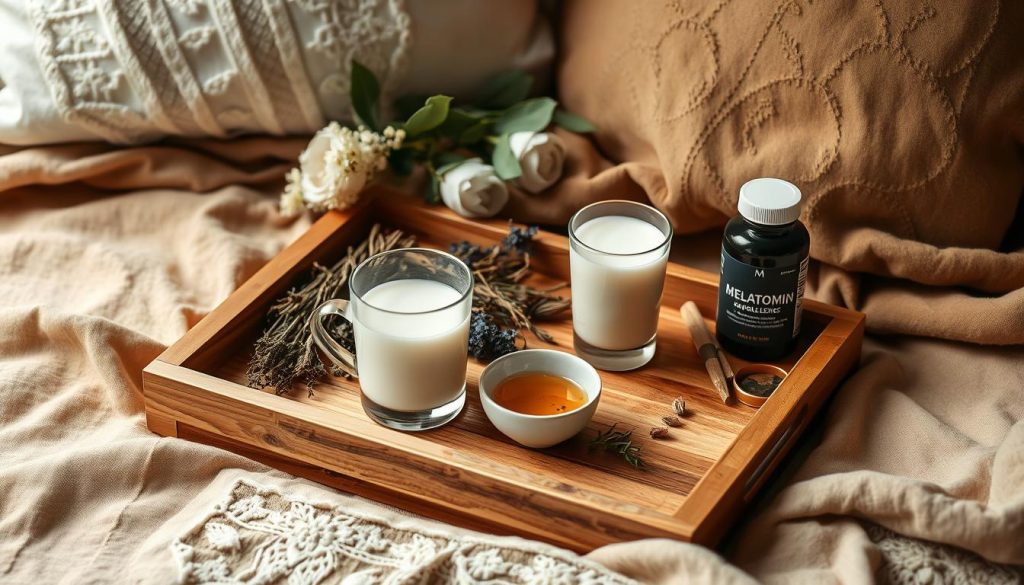Getting quality rest is harder than ever in our fast-paced world. Many people struggle to fall asleep, stay asleep, or wake up feeling refreshed. The good news is, you don’t need expensive gadgets or medications to improve your sleep.
Your body has a built-in clock called circadian rhythms. It naturally tells you when to feel sleepy and alert. But, modern life often disrupts these patterns with artificial light, irregular schedules, and stress. Yet, simple natural methods can help restore your body’s wisdom.
Quality sleep is not a luxury; it’s essential for your health and well-being. When you work with your body’s natural rhythms, better rest becomes achievable. Small changes in your daily routine can make a big difference.
The strategies ahead focus on practical, science-backed techniques that support your circadian rhythms. These methods are sustainable, cost-effective, and designed to help you sleep better naturally.
Understanding the Sleep-Wake Cycle
Deep in your brain, a complex timing system manages your sleep and wake times. This natural process impacts your health and happiness. Knowing how your body handles sleep can lead to better rest and recovery choices.
Chronobiology explores the internal rhythms that shape our lives. Your sleep-wake cycle acts like a master clock. It tells your body when to be alert and when to rest.
What is the Sleep-Wake Cycle?
Your sleep-wake cycle is your body’s internal clock, following a 24-hour cycle. It’s also known as your circadian rhythm. It decides when you’re sleepy and when you’re awake.
Your brain’s master clock is in a small area called the suprachiasmatic nucleus. It responds to light and darkness to keep you on schedule. When it gets dark, your brain releases melatonin, making you feel sleepy.
Several factors influence your natural rhythm:
- Light exposure from the sun and artificial sources
- Your daily activities and meal times
- Age and individual genetic differences
- Work schedules and social commitments

Stages of Sleep Explained
Your sleep journey has several stages that repeat in cycles. Each stage is crucial for your body and mind. Understanding these stages shows why quality sleep is so important.
The first stage is light sleep, where you can easily wake up. Stage two brings deeper relaxation with a slower heart rate. Deep sleep is vital for physical recovery and immune strength.
REM sleep is the final stage, where most dreaming happens. It helps with memory and emotional processing. A full sleep cycle lasts about 90 minutes, and you usually go through four to six cycles each night.
Each stage offers unique benefits:
- Light sleep helps you transition to deeper rest
- Deep sleep supports physical healing and hormone release
- REM sleep strengthens memory and creative thinking
- All stages together restore your energy
Importance of a Regulated Sleep-Wake Cycle
Keeping a consistent sleep schedule is key for your health. A regular circadian rhythm makes your body work better. You’ll have better focus, stronger immunity, and mood stability.
Irregular sleep can lead to sleep debt, which harms your health. This debt affects your thinking and physical health. Research shows that irregular sleep increases health risks.
A well-regulated cycle benefits your body:
- Maintains steady energy levels
- Processes emotions and memories well
- Supports healthy hormone production
- Strengthens your immune system
- Improves concentration and learning
By prioritizing consistent sleep, you invest in your health and daily performance. Your body thrives on predictability. A regular sleep-wake cycle is essential for optimal well-being.
Factors Affecting Your Sleep-Wake Cycle
Many lifestyle and environmental factors can affect your sleep. Knowing what impacts your sleep helps you improve it. Let’s look at the main factors that can help or hurt your sleep.
Light Exposure and Its Impact
Light tells your body when to wake up and when to sleep. Natural sunlight helps keep your sleep rhythms strong. It makes you sleep better at night.
But, blue light from screens and artificial lights can mess with your clock. It stops your body from making melatonin, the sleep hormone. So, blue light in the evening makes your brain think it’s still day.

- Get morning sunlight within the first hour of waking
- Limit screen time two hours before bedtime
- Use dim, warm lighting in the evening
- Consider blue light blocking glasses if you must use devices
- Keep your bedroom as dark as possible during sleep
The Role of Stress and Anxiety
Stress and anxiety make it hard to relax and sleep. They increase cortisol, a hormone that keeps you alert. This is good for staying safe, but bad for sleep.
Chronic stress messes with your sleep in many ways. It makes it hard to fall asleep, wakes you up often, and lowers deep sleep quality. Worries often get worse at night when it’s quiet.
Reducing stress can greatly improve your sleep. Simple things like deep breathing, stretching, or journaling can calm your mind before bed. Setting aside time to worry during the day helps you not bring it to bed.
Food and Sleep: What to Avoid
What you eat and drink can affect your sleep. Some foods and drinks can mess with your sleep cycle, while others help. When you eat matters as much as what you eat.
Foods and drinks that can disrupt sleep include:
- Caffeine after 2 PM (coffee, tea, chocolate, energy drinks)
- Large meals within three hours of bedtime
- Spicy or acidic foods that may cause heartburn
- Alcohol, which disrupts sleep stages despite initial drowsiness
- High-sugar snacks that cause blood sugar spikes
Eating late can upset your stomach and make you uncomfortable. It also makes your body temperature rise, which is not good for sleep.
Instead, have light snacks if you’re hungry before bed. Foods with tryptophan, magnesium, or complex carbs can help with sleep when eaten in small amounts.
Natural Remedies for Better Sleep
Nature offers powerful tools for better sleep. These methods work with your body, not against it. Finding the right mix for you is key.
Melatonin and Sleep Aids
Melatonin is a hormone that signals bedtime. Supplements can help if you have jet lag or work shifts. Take it 30 minutes before bed.
Start with a low dose, 0.5 to 3 milligrams. Higher doses can cause morning grogginess. Good sleep habits are also important.
Napping can help too. A 20-minute nap between 1 PM and 3 PM can refresh you. But nap after 4 PM to avoid disrupting night sleep.
Herbal Teas that Promote Relaxation
Chamomile tea has been calming for centuries. It contains apigenin, which helps you relax and sleep. Drink it 30 to 45 minutes before bed.

Passionflower tea is great for racing thoughts at night. It improves sleep quality and reduces falling asleep time. Valerian root tea tastes strong but is very sedative.
Make a calming bedtime ritual with your tea. Dim the lights and enjoy the warm liquid and routine.
The Power of Aromatherapy
Essential oils can relax you through smell. Lavender oil is the most studied for sleep. It increases deep sleep and morning refreshment.
Bergamot oil is a citrusy option that lowers stress and promotes calm. Sandalwood offers a woody scent that grounds and relaxes. Use them in a diffuser, on your pillow, or wrists.
Begin with just one or two drops. Aim for consistency to train your brain for bedtime.
Practical Strategies to Enhance Sleep Quality
Making simple changes to your daily habits can greatly improve your sleep. These strategies work with your body’s natural rhythms. You don’t need expensive gadgets or big lifestyle changes to see results.
These methods are easy and effective. They build on each other to create a solid plan for better sleep. Let’s look at three key areas that can improve your sleep right away.
Establishing a Consistent Sleep Schedule
Your body likes routine, especially when it comes to sleep. Going to bed and waking up at the same time every day helps your body get into a rhythm. It’s more important to be consistent than to pick the exact right hours.
It might be tempting to sleep in on weekends, but it can mess with your body’s clock. Try to keep your sleep schedule close to your weekday routine, even on weekends. This keeps your body’s rhythm steady.
Using a sleep tracker can help you see patterns and track your progress. Many people find it helps them stick to a consistent bedtime. But, don’t get too caught up in the numbers. Focus on how you feel in the morning.
![]()
Creating a Sleep-Conducive Environment
Your bedroom should be a cozy place for rest. Keep the temperature between 65-68°F for comfort. A cool room tells your body it’s time to sleep.
Darkness is key for good sleep. Use blackout curtains or an eye mask to block out light. Even a little light can stop your body from making melatonin.
Managing noise is important too. If you can’t get rid of all sounds, use a white noise machine or earplugs. Some people find that a constant background noise helps them sleep better than complete silence.
Limiting Screen Time Before Bed
Blue light from screens can make your brain think it’s still daytime. This messes with your sleep preparation. Try to avoid screens for at least an hour before bed.
Find other activities to do in the evening that help you relax. Reading, gentle stretching, or listening to calming music can replace screen time. These activities tell your body it’s time to sleep.
If you must use devices in the evening, use blue light filtering glasses or apps. They’re not perfect, but they can help reduce the sleep-disrupting effects of screens.
Remember, these strategies work for most people. But, if you have ongoing sleep problems, it might be a sign of a sleep disorder. If you’ve tried these tips for weeks without improvement, it’s time to see a healthcare professional.
When to Seek Professional Help
Natural sleep tips help many people sleep better. But, some issues need a doctor’s help. Knowing when to ask for help can greatly improve your sleep and health.
Recognizing Sleep Disorder Warning Signs
Some signs point to sleep disorders needing a doctor’s check. Loud snoring with pauses might mean sleep apnea. Trouble falling or staying asleep for weeks could be chronic insomnia.
Restless legs, feeling very tired during the day, or not feeling refreshed after sleep are also warning signs.
Benefits of Sleep Specialist Consultation
Sleep specialists can find and treat underlying health issues. They use sleep studies to check your brain and body during sleep. This helps find problems that simple sleep tips can’t fix.
Available Treatment and Therapy Options
Doctors offer many treatments, like devices for sleep apnea or therapy for insomnia. Many use a mix of medical treatments and natural sleep tips. Keeping up with good sleep habits is still important.
Combining natural sleep tips with professional advice can greatly improve your sleep. Good sleep is key to your physical and mental health.

